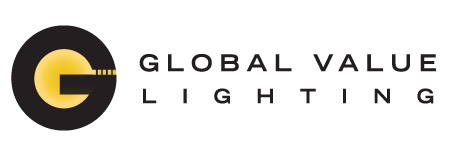QUALITY ASSURANCE
Updated 03/11/2020
The Products are subject to the Quality Assurance Clauses (QAC’s) set forth at https://globalvaluelighting.com/qaclauses
1) The Products shall conform to all specifications (i) set forth in the Global Value Lighting, LLC (“GVL”) Purchase Order (“PO”) or in any other specification document provided by GVL and/or Vendor and (ii) of any third-party certifying entity (i.e., Energy Star, UL, ETL) for the Product (“Specifications”).
- a. GVL reserves the right to inspect the manufacturing process to ensure the Products meet the specifications set forth above. [Such inspection shall take place during normal business hours upon no less than [three (3)] business days’ written notice.]
- b. Vendor shall measure and track whether the Products set forth above meet all the Specifications.
- c. If a Product does not meet all the applicable Specifications (a “Non-Conforming Product”), then, in addition to all other remedies available to GVL, GVL may elect either to (i) return the Non-Conforming Product for a full refund, including cost of any shipping, freight, tax, or duty in accordance or (ii) return the Non-Conforming Product and have Vendor (at Vendor’s sole cost) replace the returned Non-Conforming Product with a replacement Product.
- d. Vendor shall have action plans in place to improve the quality of Products in a timely manner. Vendor shall share the improvement plans and actions with GVL on a quarterly basis.
2) Vendor shall not change design criteria or components in any Product without the prior written consent of GVL.
3) Epidemic Failure.
- a. An “Epidemic Failure” will be deemed to have occurred if:
- i) Five percent (5.0 %) of the Products delivered by Vendor to during any six (6) month period fails to conform with the Specifications; or
- ii) with respect to any Product, where such Product fails to comply with applicable law or regulation or poses a risk of bodily injury or material property damage.
- b. In the case of the good-faith belief by either party that an Epidemic Failure may have occurred or is on-going, Vendor and GVL will implement the following procedure:
- i) The Party that becomes aware of any information that reasonably indicates that any Product may contain a defect that could reasonably be expected to result in an Epidemic Failure will immediately notify the other Party;
- ii) The Parties will promptly exchange relevant information and consult on causation of such Epidemic Failure;
- iii) Vendor shall support GVL as requested by GVL in conducting a product recall in accordance with Section (c) below; and
- iv) Both Parties shall use reasonable best efforts to recover all available insurance proceeds.
- c. If GVL reasonably determines (and in the case of a voluntary recall, with Vendor’s prior written consent, which shall not to be unreasonably withheld, conditioned or delayed), that a Product recall is required because of any Epidemic Failure, then in addition to any other obligations of Vendor, Vendor shall also provide GVL with reasonable assistance to (i) prepare for and make any presentation before any governmental agency that may have jurisdiction over such Epidemic Failure; (ii) sorting inventories at Vendor to separate non-conforming products; and (iii) recalling such Product.
- d. If it is reasonably determined that any Epidemic Failure is a result of a breach by Vendor of its warranty as set forth in the GVL Purchase Order Terms and Conditions, Vendor will be responsible for the costs and liabilities incurred by GVL related to such Epidemic Failure to the extent caused by such breach, including any Product recall or replacement Products. Without limiting the generality of any other remedies available to GVL, GVL shall be entitled to cancel any open Purchase Orders with Vendor without any liability to Vendor.
4) CONFLICT MINERALS. In recognition of the link between the global minerals trade and the financing of armed groups in the DRC region, the United States Congress passed Section 1502 of the Dodd-Frank Wall Street Reform and Consumer Protection Act of 2010 requiring companies to publicly report on their use and the source of these minerals. In August 2012, the United States Securities and Exchange Commission (SEC) adopted a final rule under the Securities Exchange Act of 1934, Rule 13(p)-1, requiring SEC-reporting companies that manufacture or contract to manufacture products that contain “conflict minerals” to conduct due diligence on the origin, source and chain of custody of such minerals and provide specialized disclosure regarding the findings of such diligence. The SEC currently defines “conflict minerals” to include tin, tungsten, tantalum and gold.
Vendor verifies that it has taken all reasonable attempts to source materials from suppliers who source responsibly, including from legitimate conflict-free mines in the DRC region. Vendor shall support initiatives to verify smelters and refiners that are conflict-free and shall utilize any such conflict-free smelter/refiner that is available. Should Vendor be found not to be in compliance with these objectives, the Vendor shall develop, implement, and document plans to remedy such non-compliance in a timely manner. If the non-compliance cannot be resolved, GVL reserves the right to terminate immediately the relationship with Vendor without any liability to Vendor.

